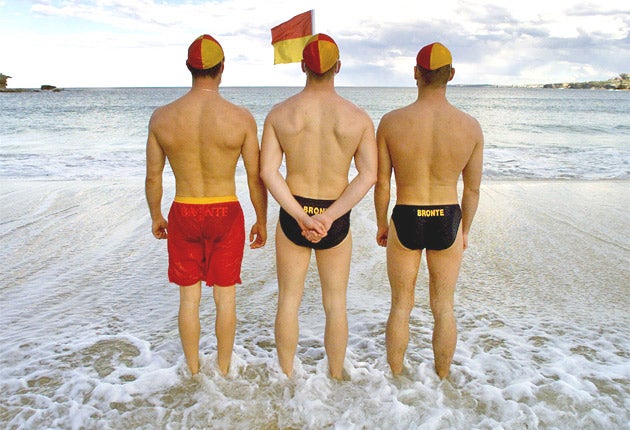Beach warfare as term 'lifeguard' is trademarked

Your support helps us to tell the story
From reproductive rights to climate change to Big Tech, The Independent is on the ground when the story is developing. Whether it's investigating the financials of Elon Musk's pro-Trump PAC or producing our latest documentary, 'The A Word', which shines a light on the American women fighting for reproductive rights, we know how important it is to parse out the facts from the messaging.
At such a critical moment in US history, we need reporters on the ground. Your donation allows us to keep sending journalists to speak to both sides of the story.
The Independent is trusted by Americans across the entire political spectrum. And unlike many other quality news outlets, we choose not to lock Americans out of our reporting and analysis with paywalls. We believe quality journalism should be available to everyone, paid for by those who can afford it.
Your support makes all the difference.Saving lives seems a noble pursuit, but the two organisations that patrol Australia's beaches, ready to save swimmers in trouble, are at loggerheads over the word "lifeguard".
In one corner are the professional lifesavers, employed by local councils to monitor beaches throughout the year. In the other are the better known, more glamorous volunteer lifesavers, with their distinctive red and yellow uniforms, who patrol only at weekends and on public holidays. Now Surf Life Saving Australia (SLSA), which represents the latter, has quietly trademarked the word "lifeguard", meaning its rivals can no longer use it in marketing and merchandise. The Australian Professional Ocean Lifeguard Association (Apola) accused SLSA of money-grabbing, and said the move had "scared off" its sponsors.
The SLSA, which has 44,000 members and receives government funding, registered the trademark during a wide-ranging review of its image. The organisation considered scrapping the four-panelled red and yellow cap, worn by surf lifesavers for more than 80 years, after younger members criticised it as old-fashioned and offering little sun protection.
This week, following a poll of members, the cap has survived. Indeed, so strong was members' attachment to it that SLSA had decided to trademark it, along with the red and yellow patrol flags. And, while it was at it, it had trademarked several terms associated with its activities: "surf patrol", "surf rescue", "nipper [a young lifesaver]" and, most contentiously, "lifeguard".
John Andrews, secretary of Apola, which represents professional lifeguards on Queensland's Gold and Sunshine Coasts, and is sponsored by retailers selling lifeguard-related merchandise, told the Courier-Mail in Queensland his members were horrified. "It's a big surprise to us," he said. "They've done it without any industry consultation, and we're somewhat miffed that they've taken this approach."
Sponsors were concerned, Mr Andrews said, because retailers had been told to stop selling the merchandise. He warned that other groups, such as water-theme parks, would also be affected. He accused SLSA of pursuing a commercial strategy rather than saving lives. "SLSA have taken a view that organisations using the word 'lifeguard' have to get permission from them. The financial impact for us is significant. Unlike Surf Life Saving, we get no government funding."
The chief operating officer of SLSA, Peter George, told the Sydney Morning Herald that SLSA employed 700 paid lifeguards, more than any other organisation in Australia. "We have a huge vested interest in the word 'lifeguard'," he said. "We don't propose to stop them [council guards] using the term 'lifeguard', and we don't propose to stop them using it legitimately to support income streams." The aim, he said, was to prevent organisations not involved with water safety from using the trademarked words and images to raise money.
And although the cap stays, red, wide-brimmed hats and peaked caps are to become mandatory next summer for sun protection, and will be worn over the skullcaps. The uniform was modernised two years ago, introducing boardshorts. Younger club members said they disliked the tight-fitting Speedo swimming briefs, known as "budgie-smugglers".
Join our commenting forum
Join thought-provoking conversations, follow other Independent readers and see their replies
Comments